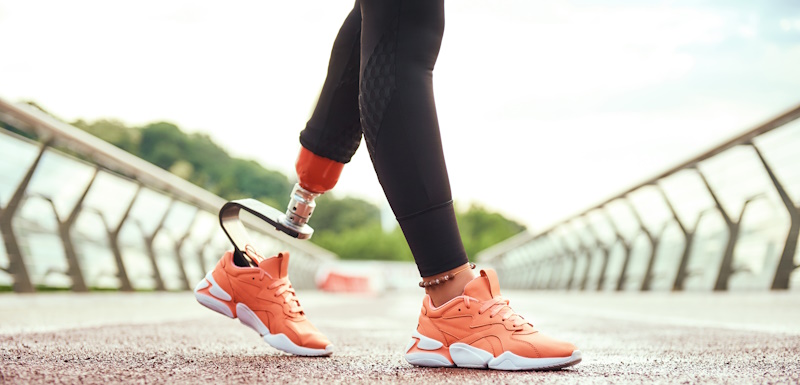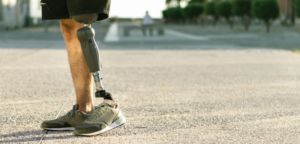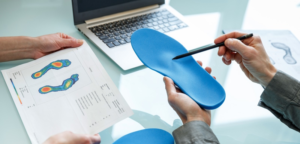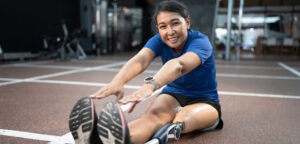A Breakdown of the Functional and Mental Health Benefits of Prosthetic Devices
An amputee’s journey is far more than simply adapting to a physical change and wearing a prosthetic. Amputees endure complex emotional and psychological challenges during healing and as they transition to a new way of life. Those who have suffered loss of limb face the type of adversity that few people do, which can make it difficult for friends and family members to relate.
The physical challenges of using a prosthetic will test a person’s resolve, but the psychological challenges that accompany this transitional period are equally significant. The psychological hurdles that prosthetic wearers often encounter and the inspiring ways they overcome them can be thanks to advanced prosthetics.
The Psychological Challenges of Using a Prosthetic
The thought of living life without a limb is highly triggering for some people, and rightfully so. Nobody ever plans on becoming an amputee, so when it happens, it can be incredibly jarring to the psyche. The following are the most common challenges that amputees encounter when adjusting to a new life as a prosthetics user.
Feelings of Loss and Grief: The loss of a limb is a profound experience that can trigger feelings of grief and mourning for what was once taken for granted. Prosthetic wearers may grapple with a sense of loss over their former physical abilities, leading to emotions of sadness, anger, and frustration. According to Physiopedia, approximately 30% of amputees battle with depression.
However, time is an effective healer of wounds – even amputation. Individuals never immediately adjust to their new way of life, but they do in time. Many people find solace in joining support groups or seeking professional counseling to navigate their emotions and come to terms with their new reality.
Body Image and Self-Esteem Issues: Body image and self-esteem struggles are common among prosthetic wearers, as visible differences in appearance can sometimes lead to self-consciousness. Overcoming these challenges involves reframing perceptions of beauty and acknowledging the strength that comes from embracing one’s uniqueness.
Connecting with other prosthetic wearers who exude confidence can boost self-esteem, reminding individuals that their worth transcends physical appearance. For example, many prosthetic wearers find engaging in athletic activities with other amputees is a healthy avenue to rediscover feelings of normality and confidence through sports.
Fear of Rejection and Isolation: Nobody wants to be judged or rejected, especially for something that’s not their fault. The fear of being rejected by society due to prosthetic limb use can lead to feelings of anxiety and isolation.
Overcoming this challenge involves cultivating a strong sense of self-worth and surrounding oneself with supportive friends and family members. Engaging in social activities, pursuing hobbies, and participating in prosthetic support groups can help individuals build meaningful connections and mitigate feelings of isolation.
Fear of Failure: No amputee is absolutely confident in their ability to overcome the challenges of using a prosthetic. Fear is always a factor; however, what’s important is that individuals don’t let their fear overwhelm them or push them into a state of dormancy. The process of mastering the use of a prosthetic limb will involve setbacks and frustrations, but that’s all part of the process.
To overcome this, prosthetic users should focus on making progress, even if that means getting just 1% better every day. For those attending group therapy, sharing stories of perseverance and celebrating each milestone can instill a sense of accomplishment and motivation to keep moving forward. By keeping in mind the benefits of prosthetic devices, users can see a way forward through even the darkest of times.
Your Prosthetist Can Help You Overcome the Challenges of Using a Prosthetic Device
Attending support groups, speaking with other amputees, and focusing on your mental health will all prove beneficial to your psychological state. Additionally, your prosthetist will have plenty of experience working with folks who have endured the same journey you’re on.
Experienced prosthetists are typically well-versed in the psychological challenges of using a prosthetic device and are happy to help clients get the help and support they need. Amputees who take the time to address their mental health have an easier time seeing the benefits of a prosthetic device and how it enriches their life.
Those who wish to speak with an experienced prosthetist should make an appointment for an initial consultation. In addition to answering your questions about prosthetics, your local prosthetist can also review what challenges to expect, share resources that will help you overcome them, and provide tips and best practices for using your new device.
Advanced prosthetics that facilitate higher levels of functioning make it possible to not only walk again, but to run and participate in athletic activities. Speak with your prosthetist about your goals, and they will do everything in their power to help you achieve them.







